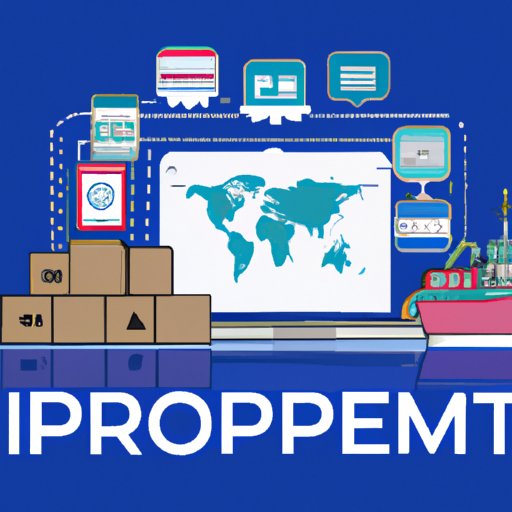Introduction
Import and export businesses are a great way to make money in the global marketplace. With the right strategies and know-how, anyone can start an import/export business. In this article, we’ll explore what it takes to get started in this line of work, from researching the target market to utilizing digital platforms for success.
Overview of Import/Export Business
An import/export business is a company that facilitates the trade of goods between different countries. The business may act as a middleman, buying goods from one country and reselling them in another. Alternatively, the business may coordinate the purchase and transportation of goods from one country to another without ever taking possession of the goods itself.
Benefits of Starting an Import/Export Business
There are several benefits to starting an import/export business. For starters, it allows entrepreneurs to capitalize on global markets and take advantage of economies of scale. Additionally, it gives entrepreneurs the opportunity to earn a substantial profit margin due to the large demand for imported and exported goods worldwide. Finally, it offers entrepreneurs the opportunity to work independently and set their own hours.
Researching the Target Market
Before starting an import/export business, it’s important to research the target market. This includes understanding the demand for imported/exported goods and identifying potential buyers and sellers. First, entrepreneurs should research which goods are in high demand in different countries. This will help identify which products are most likely to be successful. Then, entrepreneurs should research potential buyers and sellers in each country. This will help ensure that there is enough demand for the product to make it profitable.
Developing a Business Plan
Once entrepreneurs have identified the target market and products they want to import/export, it’s time to develop a business plan. This plan should outline the objectives and strategies for achieving those objectives. This includes determining the capital needed to start the business, creating a budget, and setting sales goals. It’s also important to create a marketing plan, outlining how entrepreneurs will promote their business.
Obtaining Necessary Licenses and Permits
In order to operate an import/export business, entrepreneurs must obtain the necessary licenses and permits. This includes obtaining a business license, tax ID number, and any other paperwork required by local, state, and federal governments. Additionally, entrepreneurs must obtain an import/export license, which may require additional paperwork. Entrepreneurs should research the requirements for their specific area before starting the process.
Choosing Appropriate Payment Methods
When starting an import/export business, it’s important to choose appropriate payment methods. This includes deciding which currencies to accept, which payment processors to use, and how to protect both buyers and sellers from fraud. It’s important to select payment methods that are secure and accepted in the countries where the business operates.
Establishing Supplier Relationships
Once entrepreneurs have chosen payment methods, it’s time to establish supplier relationships. This involves finding reliable suppliers who can provide quality goods at competitive prices. It’s also important to ensure that suppliers are able to deliver goods in a timely manner. Finally, entrepreneurs should ensure that all suppliers adhere to local laws and regulations.
Utilizing Logistics Services
When importing/exporting goods, it’s important to utilize logistics services. Logistics services can help ensure that goods arrive on time and in good condition. They can also help reduce costs associated with shipping and handling. It’s important to research different logistics companies to find the best option for the business.
Utilizing Digital Platforms
Finally, entrepreneurs should consider utilizing digital platforms to promote their business. This includes utilizing e-commerce sites, online marketplaces, and social media platforms. These digital platforms can help entrepreneurs reach a larger audience and expand their customer base. Additionally, these platforms can be used to facilitate transactions and provide customers with a convenient shopping experience.
Conclusion
Starting an import/export business can be a great way to make money in the global marketplace. To be successful, entrepreneurs must first research the target market and develop a business plan. Additionally, they must obtain the necessary licenses and permits, choose appropriate payment methods, establish supplier relationships, utilize logistics services, and utilize digital platforms. With the right strategy and know-how, anyone can start an import/export business.
(Note: Is this article not meeting your expectations? Do you have knowledge or insights to share? Unlock new opportunities and expand your reach by joining our authors team. Click Registration to join us and share your expertise with our readers.)
